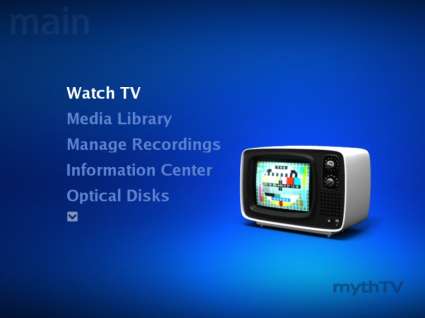The MythTV Convergence
Introduction
Technology surrounds and supports us in our everyday lives; it sometimes even assists with routine tasks on the job or at home. A new crop of ever-more sophisticated devices is becoming increasingly more attuned to and aware of our entertainment or communications needs where some features overlap across separate devices. One example is the cell phone that doubles as a PDA preloaded with games, or how about a PDA that can be converted into a softphone when using the right software?
Some of these devices are islands unto themselves - not that they were intended to be isolated from others - it just happens to be their nature. Cell phones and personal digital assistants offer an interesting example of islands-of-technology turning into real convergence technologies that currently occupy viable market spaces. Some arrangements epitomize a perfect marriage of technologies that are similar in function or purpose, but that diverge in their mode of operation, such as Bluetooth and 802.11 wireless communications or Session Initiation Protocol (SIP) or Voice over Internet Protocol (VoIP). All of this works toward the sometimes elusive but always tantalizing goal of converging our most frequently and commonly used forms of communications designed to boost productivity in our busy working lives.
But what about off-hours lifestyles? Is there anything that caters to the convergence of counterproductive pursuits when we climb off the treadmill? Surely, something can make sense of those scattered pockets of modern technology, such as the hand-held MP3 player, portable DVD playback unit, purchased or copied audio/video collections and the television and radio programming that captures our personal allegiance. Ideally, this should occur in a consolidated interface that's easily themed, modified and extended through an open-ended plug-in architecture.
Enter MythTV, a grand unification of personal digital video recording and home theater technology, and a magnum opus of modular design, freedom of expression and personal entertainment. At its core, MythTV is a digital video recording solution composed of several modular components that facilitate time-stretched manipulation of live television feeds, but it's really much more than that. In this multi-part article, we examine the depth and scope of MythTV's capabilities. We start here from the standard MythTV base, then address the wide-open capabilities that make MythTV more than just a video recording suite - the capabilities that make it into a quintessential home theater PC (HTPC) system.
MythTV is a software suite that's available as a free download. It consists of a menu system, several plug-ins and a unique frontend/backend network architecture that can be used to transform an existing Linux, BSD, Mac OSX or Windows desktop computer into the multimedia entertainment centerpiece in your den, bedroom or office. Using MythTV, you can morph your desktop into a video viewfinder, a slideshow gallery, a DVD burning station, a VoIP phone console, a Netflix manager and more.
Hardware requirements are easily satisfied: MythTV can run on minimalist EPIA mini-ITX PCs (with or without integrated hardware decoding) all the way up to high-end server hardware with multiple processors and video capture cards. In essence, MythTV has the same minimum requirements as Linux, with the addition of audio/video hardware normally too specialized for typical desktop use. There are a number of compatible capture cards that work with Linux and MythTV, some of which are described here and there. Basic configuration requirements (as described in the MythTV documentation) are described in more detail later in this story.
Configuration is well documented in the MythTV WiKi in both the Initial Installation and Setting Up start guides, and there is an excellent Daily Use Guide for those seeking quick familiarization with the ins and outs of MythTV usage.
Get Tom's Hardware's best news and in-depth reviews, straight to your inbox.
A more in-depth perspective of MythTV is provided in the following paragraphs and in additional articles in this series.
Ed Tittel is a long-time IT writer, researcher and consultant, and occasional contributor to Tom’s Hardware. A Windows Insider MVP since 2018, he likes to cover OS-related driver, troubleshooting, and security topics.


